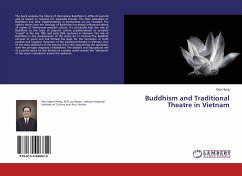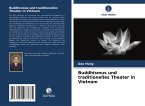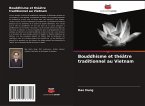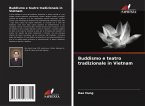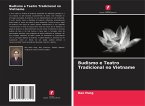The book analyzes the history of Vietnamese Buddhism in different periods and its impact on national art, especially theater. The main postulates of Buddhism and their implementation in Vietnamese art are revealed. The author shows how the ideology of Buddhism has deeply influenced almost all realms of Vietnamese people's culture. It's concluded that the role of Buddhism as the base of popular culture predetermined its so-called "revival" in the late 19th and early 20th centuries in Vietnam. The role of Buddhism in the development of the scenic art in Vietnam The Buddhist concept of good and evil formed the basis for the formation of both positive and negative characters of the traditional theatre in Vietnam. One of the main objectives of the theatre lied in the acquainting the spectators with the principal dogmata of Buddhism. The didactic and educational role of a performance on the themes of a jataka could remove the "sinfulness" of this show intended to amuse the audience.

